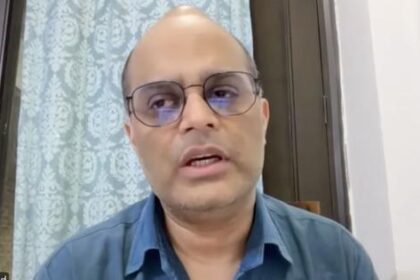Sanctions highlight international drug trafficking concerns involving counterfeit pills and illicit substances.
The United States has recently imposed sanctions on two Indian citizens, Sadiq Abbas Habib Sayyed and Khizar Mohammad Iqbal Shaikh, for their alleged involvement in the distribution of counterfeit prescription pills containing fentanyl and other illicit drugs. This action was announced by the Department of the Treasury’s Office of Foreign Assets Control (OFAC), which also designated an India-based online pharmacy linked to these operations.
According to the authorities, Sayyed and Shaikh are believed to be significant figures in an international network that has purportedly distributed “hundreds of thousands” of counterfeit pills, falsely marketed as legitimate pharmaceutical products, into the United States. These counterfeit medications were reportedly laced with fentanyl, a synthetic opioid that has been central to the opioid crisis in the country, as well as a fentanyl analogue and methamphetamine.
Fentanyl has gained notoriety for its role in the widespread addiction crisis in the U.S., prompting significant government action against its illegal imports. John K Hurley, the under secretary for terrorism and financial intelligence, emphasized the need to hold accountable those profiting from the distribution of such dangerous substances, highlighting the devastating impact fentanyl has had on families across the nation.
The sanctions against Sayyed and Shaikh are part of a broader effort by the U.S. government to address the ongoing opioid epidemic, which has resulted in the deaths of “hundreds of thousands” of citizens. The Treasury Department pointed out that fentanyl is a leading factor driving this crisis, prompting efforts to curb its supply.
Authorities allege that Sayyed and Shaikh collaborated with traffickers based in the Dominican Republic and the United States to facilitate the distribution of these counterfeit pills. They reportedly used encrypted messaging platforms to market their products as discounted pharmaceuticals, further complicating efforts to track and dismantle their operations.
In September 2024, both individuals were indicted by a federal grand jury in New York on narcotics-related charges, underscoring the seriousness of their alleged crimes. In a related development, the U.S. embassy in New Delhi announced on September 18 that it had revoked and denied visas to several Indian business executives and corporate leaders due to their suspected involvement in trafficking fentanyl precursors. However, specific names and companies were not disclosed in this announcement.
Earlier this month, former President Donald Trump identified India, along with Pakistan and China, as major drug transit or producing nations, citing concerns that these countries pose a threat to the safety of Americans. This designation underscores the ongoing challenges faced by authorities in combating international drug trafficking and protecting public health.








